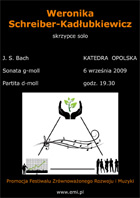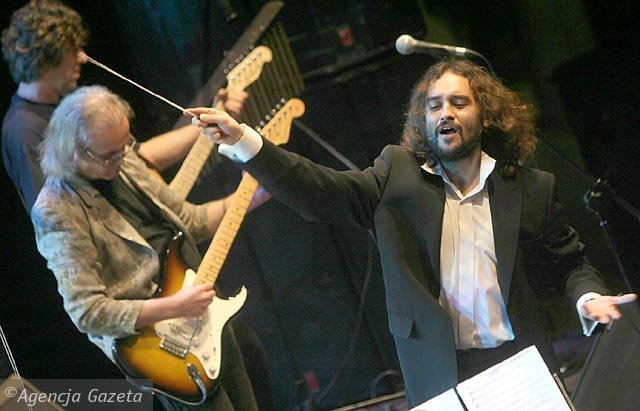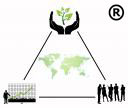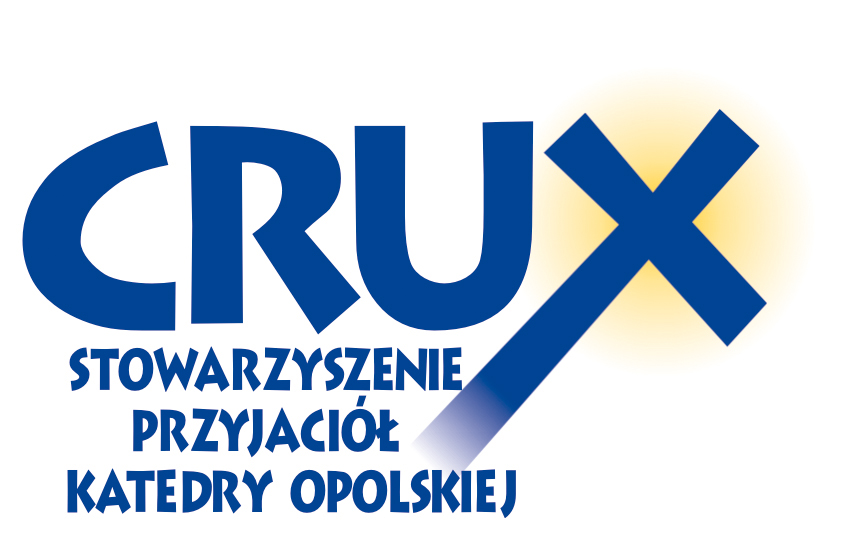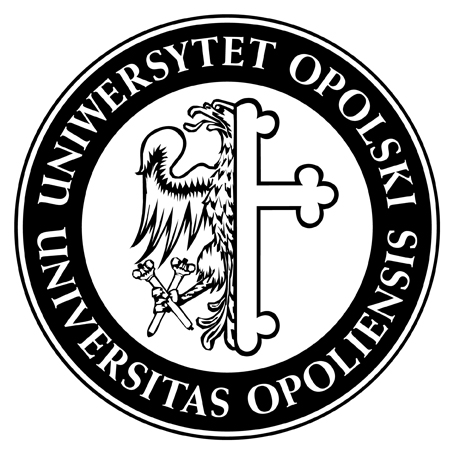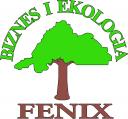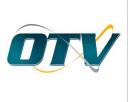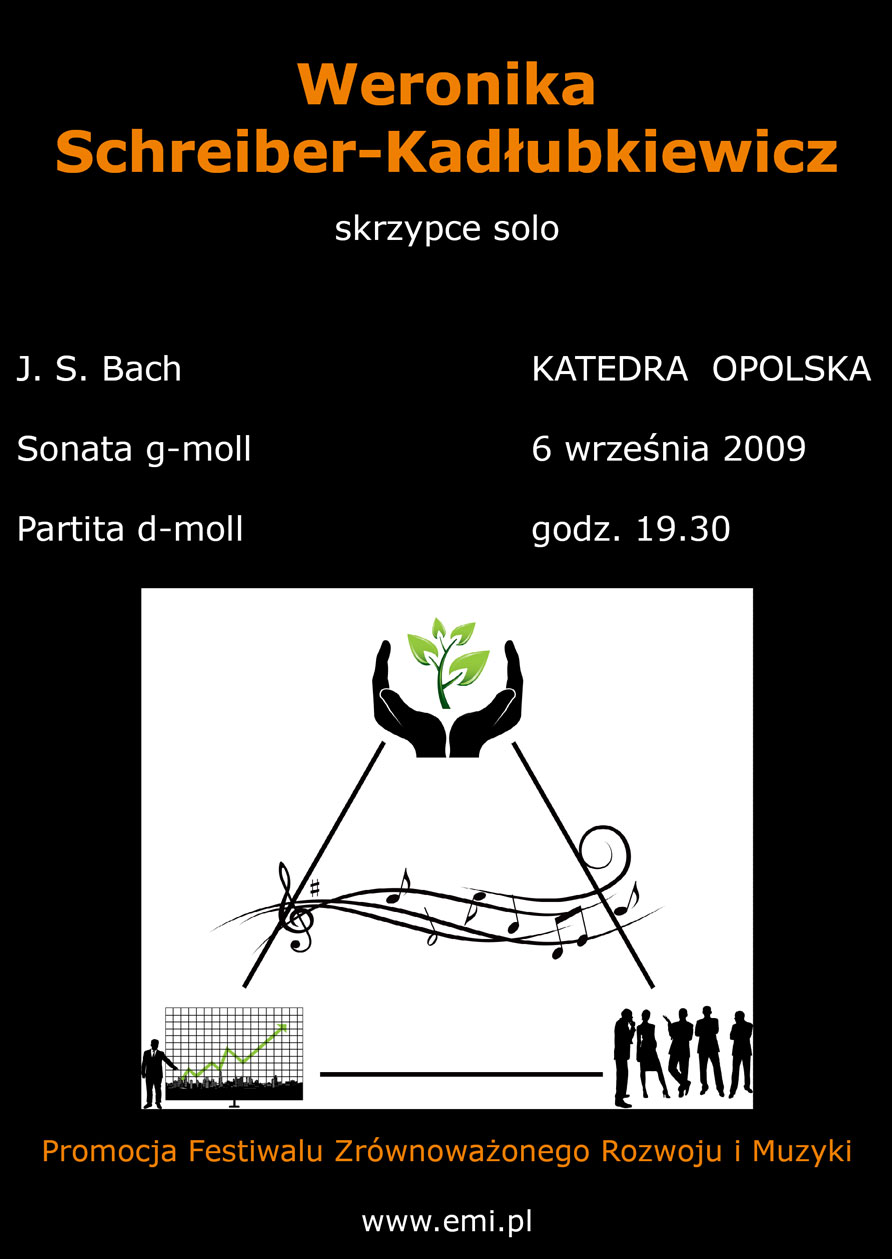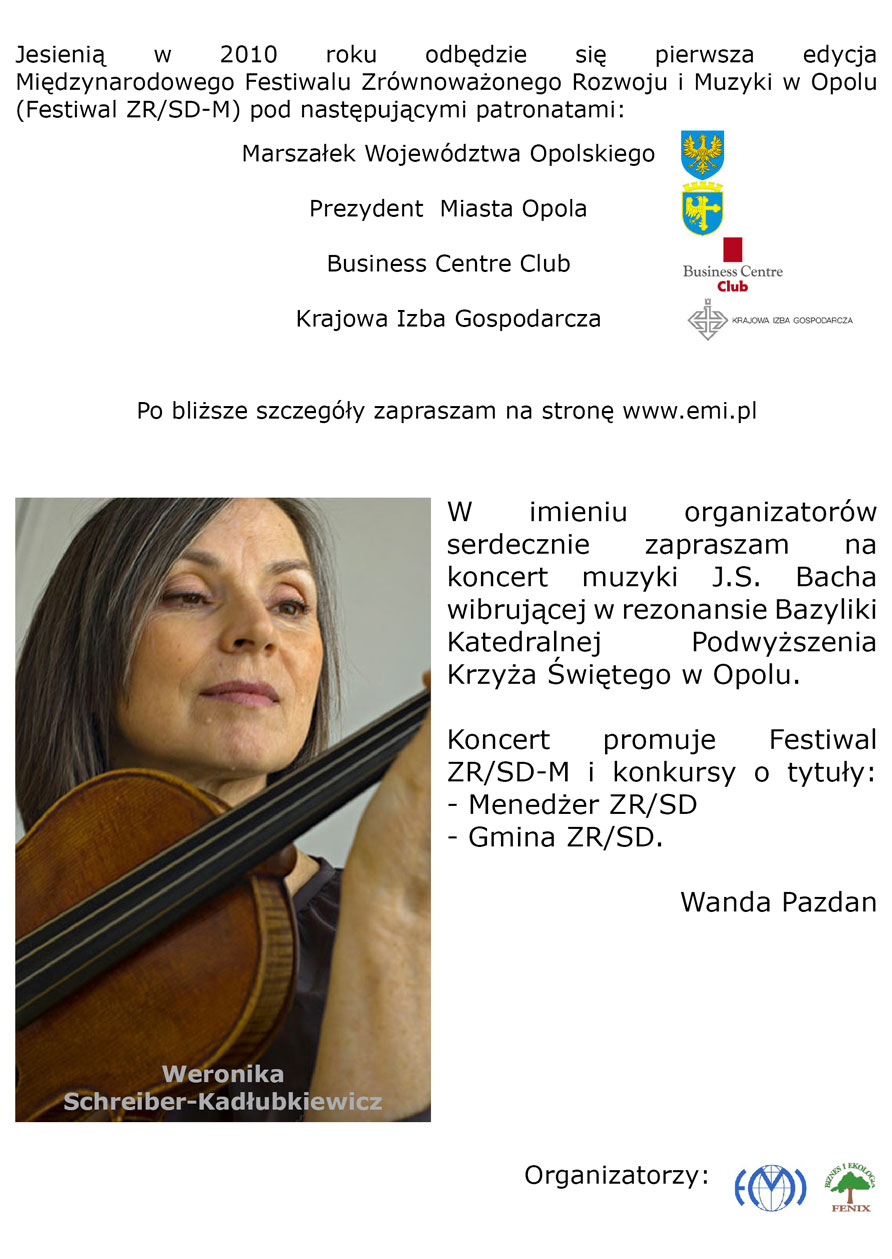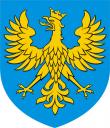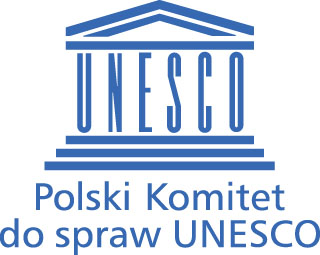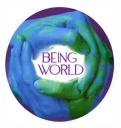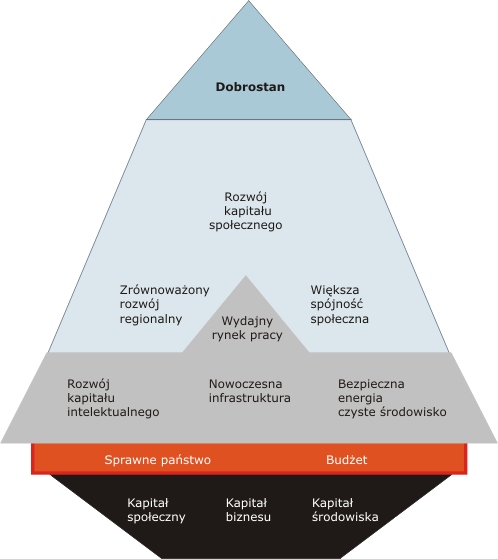Archiwum Autorow
Sorry, this entry is only available in Polski.
Kategoria: Sustainable development Blog, Articles and reportage | Komentarze wył. »
In 2013 European Commission published the “Tips and Tricks for Advisors – Corporate Social Responsibility for Small and Medium-Sized Enterprises” . Quatation from this guidebook:
“This guidebook is based on the 2011 understanding of corporate social responsibility (CSR) developed by the European Commission, in which it is defined as, “the responsibility of entrprises for their impacts on society”. Furthermore it states that “Respect for applicable legislation, and for collective agreements between social partners, is a prerequisite for meeting that responsibility. To fully meet their corporate social responsibility, enterpises should have in place a process to integrate social, environmental, ethical, human rights and consumer concerns into their business operations and core strategy in close collaboration with their stakeholders, with the aim of:
– maximising the creation of shared value for their owners/shareholders and for their other stakeholders and society at large;
– identifying, preventing and mitigating their possible adverse impacts.
The complexity of that process will depend on factors such as the size of the enterprise and the nature of its operations. For most small and medium-sized enterprises, especially micro-enterprises, the CSR process is likely to remain informal and intuitive.””
The strategic thinking is the base of the implementation of CSR, we can say also the sustainable development rules. The way of implementation depends of the kind of enterpise but is the chalenge for all, the biggest and the smallest, even self-employment enterprises.
Everybody, every person, has to change the way of thinking and acting…
Kategoria: Sustainable development Blog, CSR | Komentarze wył. »
Innowacyjność umieszczono w sercu Strategii Europa 2020. Ponieważ obywatel jest stroną Strategii Europa 2020, oznacza to, że rozwój wewnętrzny każdego z nas ma kolosalny wpływ na realizację tej strategii, budowę społeczeństwa obywatelskiego i rozwój kraju.
Kategoria: Sustainable development Blog | Komentarze wył. »
Ponieważ muzyka i duchowość człowieka są nierozerwalnie związane z wdrażaniem zrównoważonego rozwoju, dlatego zamieszczam tu następujące, wybrane z literatury, cytaty:
Kategoria: Sustainable development Blog | Komentarze wył. »
Kategoria: CO2 / Zmiana klimatu | Komentarze wył. »
Kategoria: Sustainable development Blog | Komentarze wył. »
Czy zrównoważony rozwój to tylko hasło związane z funduszami unijnymi, czy też “prawidło” życia naszych czasów?
Uważam że:
- – naukowcy spotykają się na konferencjach, gdzie we własnym gronie dzielą się swoimi przemyśleniami na temat zrównoważonego rozwoju, bez szerokiego przekazu dla mediów, polityków i dla społeczeństwa;
- – w urzędach powstają dokumenty planistyczne niezbędne w procedurach pozyskiwania funduszy unijnych, w których zapis na temat zrównoważonego rozwoju ma miejsce, bo jest tam niezbędny ze względu na politykę Unii Europejskiej;
- – strategię zrównoważonego rozwoju duże przedsiębiorstwa publikują na stronach internetowych, ale głównie w celach marketingowych;
- – średnie i małe przedsiębiorstwa nic na ten temat nie wiedzą lub uważają z góry, że ich na to nie stać, że mają większe własne problemy;
- – wartości odżywcze żywności są coraz gorsze, rolnictwo jest bardziej nastawione na zysk niż na gospodarkę ziemią i produktami rolnymi w duchu zrównoważonego rozwoju;
- – koncerny farmaceutyczne i usługi medyczne głównie liczą się z zyskiem;
- – uczelnie zaznajamiają studentów z problematyką zrównoważonego rozwoju;
- – szkoły zaznajamiają uczniów z ekologią;
- – media wolą nagłaśniać wypadki transportowe i wpadki polityków…
Kategoria: Sustainable development Blog, CSR | Komentarze wył. »
Konkurs o tytuł Gmina Zrównoważonego Rozwoju nie odbył się, ponieważ zarejestrowane podmioty nie złożyły ankiety zgłoszeniowej.
Nie udało się również pozyskać dotacji dla tego projektu, gdyż potencjalne podmioty, z którymi firma EMI mogła startować do istniejących funduszy, odmówiły współpracy w tym zakresie (OIG, OCRG).
Kategoria: Competition Commune ZR/SD | Komentarze wył. »
Konkurs o tytuł Menedżer Zrównoważonego Rozwoju nie odbył się z powodu braku zgłoszeń. Podmioty, które się zarejestrowały do darmowego konkursu, nie złożyły ankiety zgłoszeniowej.
Nie udało się również pozyskać dotacji dla tego projektu, gdyż potencjalne podmioty, z którymi firma EMI mogła startować do istniejących funduszy, odmówiły współpracy w tym zakresie (OIG, OCRG).
Kategoria: Competiton - Manager ZR/SD | Komentarze wył. »
Udało się pozyskać tylko jednego sponsora – ATMOTERM S.A w kategorii Opiekuna (5000zł), co nie gwarantowało pokrycia planowanych kosztów Festiwalu. Fundusze zostały zwrócone sponsorowi.
Kategoria: Sponsors of ZR/SD-M festival | Komentarze wył. »
Festiwal Zrównoważonego Rozwoju i Muzyki nie odbył się z powodu braku sponsorów. Udało się pozyskać jednego sponsora -ATMOTERM S.A. – w kategorii Opiekun (5000 zł), co nie pokryło istniejących i planowanych kosztów Festiwalu. Pozyskane fundusze zostały zwrócone sponsorowi.
Nie udało się również pozyskać dotacji na ten cel, gdyż potencjalne podmioty, z którymi firma EMI mogła startować do istniejących funduszy, odmówiły współpracy (jak na przykład Filharmonia Opolska).
Kategoria: Festival ZR/SD-M | Komentarze wył. »
Najnowsza Strategia Unii Europejskiej EUROPA 2020 – strategia na rzecz inteligentnego i zrównoważonego rozwoju sprzyjającego włączeniu społecznemu – to strategia w zasadzie implementująca strategię Sustainable Development Strategy (SDS). Mówi wprawdzie o innych trzech filarach, ale wczytując się dokładnie w treść strategii EUROPA 2020 znajdujemy implementację podejścia opartego na rozwoju kapitału biznesu, rozwoju kapitału społecznego i ochronie środowiska (a więc ochronie i rozwoju kapitału środowiska). Czytaj całość …
Kategoria: Sustainable development Blog | Komentarze wył. »
We need to prevent wasting of the European Union and national funds on capture and storage of carbon dioxide projects. The energetic safety is the first priority task.
We have to be just in time with our information, prior to the approval of EUROPE 2020 strategy in June 2010!
It is very important for our present days and for our future to understand the natural processes correctly, such as the process of the global climate change.
Nicolaus Copernicus had helped us to realize, that our Earth is not a center of the Universe, but merely one of the members of the Solar System. On the basis of this realization one has build also physics of the Earth`s global climate during several recent years. One has assumed, when doing this, that the whole energy influencing the global warming observed in years 1860-1990 was coming from the “interior” of the Solar System, that means from the Sun and from the Earth itself, including her habitants, what further means – coming from the human industrial activities. The fact that the “global” industrial revolution had occurred exactly during the same period of time, has suggested that there are exactly we ourselves, who are one of the main culprits of the observed warming on the Earth.
However, the newest theoretical investigations by physicists and astrophysicists, and the observations of the development of all physical factors connected with climate, as carried out with increasing intensivity in the last twenty-year period, demonstrate unquestionably that the time-correlation between the actual global warming and the industrial revolution was only made by chance. It becomes evident that the amount of energy in human disposal is vanishingly small in comparison with the amount of energy in disposal of Nature (Universe). In order to properly consider this energetic relation, a next “intellectual revolution” is necessary, similar to the “Copernican revolution”. We have to accept the fact that also our Solar System is not an energetic center of the Universe, but it is only a member of huge cosmic hierarchy of such objects as groups of stars, smaller and larger galaxies, up to huge clusters of galaxies. Only an analysis of the energetic relations inside of the whole cosmic hierarchy allows us to understand the process – and what is the most important – to foresee in the next and further future the natural changes of the global climate.
The first and most important practical conclusion from the analysis of the theoretical and observational investigations is the following. The natural warming has reached its theoretical maximum in summer 1990, and since then begun the next natural phase of the global cooling. Initially in years 1990-2003 it was a stagnation rather than an evidently felt cooling. The very recent few years, however, show an undisputable tendency of the falling down Earth`s temperature. This cooling intensify itself during the next half of the century.
The energy resources of the Earth will be in any way high enough to compensate this natural cooling. As soon as possible, we have to change our point of view upon the problem of the “human regulation of climate”, in order to prevent the energetic catastrophe, especially in those regions of the Earth, which are normally colder than the remaining parts of the world. We have to revise our plans to spend funds for capturing and storage of CO2 projects for climate saving. In light of the newest investigations, funds devoted to such projects can be better directed to roads infrastructure, transportation and energetic projects.
Information EMI for politicians, national administration, local administration, business, and media by P. Jakubowski http://www.naturics.de/
Kategoria: CO2 / Zmiana klimatu | Komentarze wył. »
Strategia EUROPA 2020
Czerwcowy szczyt Rady Europejskiej zaowocuje zatwierdzeniem strategii EUROPA 2020, potwierdzeniem celów UE i celów krajowych oraz zaaprobowaniem zintegrowanych wytycznych dla strategii EUROPA 2020.
Strategia EUROPA 2020 to strategia na rzecz inteligentnego i zrównoważonego rozwoju sprzyjającemu włączeniu społecznemu. Strategia ta implementuje w zasadzie strategię EU SDS. Jest strategią zrównoważonego rozwoju.
Kategoria: Sustainable development Blog | Komentarze wył. »
REGULAMIN FUNKCJONOWANIA I PRZYZNAWANIA PRAWA DO TYTUŁÓW „MENEDŻER ZR/SD” i „GMINA ZR/SD” oraz PROMOCYJNEGO ZNAKU GRAFICZNEGO
POSTANOWIENIA OGÓLNE
Nazwa pliku Regulaminu
Nazwa pliku Regulaminu: Regulamin Konkursów ZR SD 2010
Organizatorzy
Organizatorami Konkursów są redakcja czasopisma „Biznes i Ekologia” i firma EMI .
Biuro Konkursów
Biuro Konkursów prowadzi firma EMI, autor Regulaminu.
Promocyjny znak graficzny
Autorem promocyjnego znaku graficznego jest Filip Syrylak. Znak i tytuły podlegają ochronie. Wanda Pazdan jest autorem tytułów „Menedżer ZR/SD” (Menedżer Zrównoważonego Rozwoju) i „Gmina ZR/SD” (Gmina Zrównoważonego Rozwoju). Wyłączne prawa majątkowe do znaku i tytułów posiada firma EMI.
Terytorialny zasięg Konkursów
Konkursy adresowane są do menedżerów i gmin Europy.
Honorowy Patronat
Marszałek Województwa Opolskiego i Prezydent Miasta Opola, Polski Komitet ds. UNESCO, Krajowa Izba Gospodarcza i Biznes Centre Club, COMMITMENT TO EUROPE arts@business i Being World doceniając rolę zrównoważonego rozwoju w XXI wieku, poparli akcję promocyjną i udzielili honorowego patronatu nad ww. Konkursami i Festiwalem Zrównoważonego Rozwoju i Muzyki.
Definicja pojęcia menedżer zrównoważonego rozwoju
Menedżer ZR/SD: menedżer zrównoważonego rozwoju (sustainable development) to menedżer, który swoim działaniem i wpływem na otoczenie doprowadził do:
- zbudowania, wspólnie z pracownikami, wizji rozwoju danej jednostki organizacyjnej w dalekiej, określonej przyszłości, wizji, w której rozwój ekonomiczny dzieje się z poszanowaniem środowiska i społeczeństwa,
- przełożenia wizji na strategię zrównoważonego rozwoju w sposób:
- umożliwiający kontrolę jej realizacji
- zapewniający zharmonizowanie formy i celów ze strategiami wyższych szczebli administracji, aż po UE
- dostosowywania planistycznego i operacyjnego systemu zarządzania do raportowania postępów na drodze zrównoważonego rozwoju
- opracowania i wdrażania deklaracji kultury firmy w duchu zrównoważonego rozwoju,
- atmosfery, która dodaje odwagi pracownikom do podważania istniejącego stanu rzeczy i podejmowania ryzyka,
- rozwijania wyobraźni i duchowości pracowników oraz mobilizacji do ustawicznego kształcenia,
- angażowania kreatywności pracowników.
- Swoim działaniem stymuluje powstawanie innowacyjnych produktów/usług zasługujących na miano produktów/usług zrównoważonego rozwoju. Wspomaga projekty dotyczące kultury, zdrowia i edukacji.
Definicja deklaracji kultury firmy w duchu zrównoważonego rozwoju
Kulturę można określić jako ogół wytworów ludzi, zarówno wytworów materialnych, jak i niematerialnych (duchowych, symbolicznych, takich jak wzory myślenia i zachowania).
DEKLARACJA KULTURY FIRMY W DUCHU ZRÓWNOWAŻONEGO ROZWOJU powinna zawierać następujące deklaracje (nie koniecznie wszystkie):
- deklarację wdrożenia systemu zarządzania postępem na drodze do zrównoważonego rozwoju,
- deklarację wdrożenia publicznie dostępnego raportu z rocznej działalności w układzie GRI (Global Reporting Initiative) lub w podobnym układzie, i poddawania go audytowi niezależnej jednostce: uczelnia, instytut, firma doradcza, itp.),
- deklarację wytwarzania produktów, czy dostarczania na rynek usług coraz bardziej energooszczędnych, wodo-oszczędnych, z coraz mniejszą materiałochłonnością, ze zmniejszającą się emisją bezpośrednią i pośrednią ogółu zanieczyszczeń z procesów, ze zwiększającym się udziałem zużycia zielonej energii, ze zwiększającym się korzystaniem z lokalnych materiałów i surowców, z minimalizacją odpadów i nowoczesną gospodarką odpadami, ze zwiększającą się obsługą recyklingu sprzedanych produktów, chroniących bioróżnorodność, nie powodujących zagrożenia zdrowia ludzi, z wydłużonym cyklem życia poprzez zabezpieczenie dostępności części zamiennych przez cały okres planowanego życia produktu;
- deklarację oszczędniejszego użytkowania energii, wody i materiałów na cele pozaprodukcyjne,
- deklarację uniezależniania się od dostawców energii z uwzględnieniem zielonej energii,
- deklarację minimalizacji potrzeb transportu indywidualnego oraz ekologicznej i finansowej optymalizacji floty transportowej i jej użytkowania,
- deklarację dbałości o bezpieczeństwo w miejscu pracy,
- deklarację ustawicznego kształcenia pracowników z uwzględnieniem roli słowa, muzyki, obrazu i ruchu w rozwoju kreatywnej jednostki,
- deklarację wspomagania prewencji zdrowia,
- deklarację tolerancji dla odmienności kulturowej,
- deklarację zwiększania procentowego udziału zielonych zamówień,
- deklarację zwiększania procentowego udziału zamówień od dostawców, którzy respektują Kartę Praw Podstawowych UE, Kartę Praw Człowieka,
- deklarację coraz to większej dbałości o estetykę miejsc pracy i terenu zakładu oraz kulturę pracowników,
- deklarację zwiększania dbałości o rozwój lokalnej społeczności i społeczności Świata.
Definicja pojęcia gmina zrównoważonego rozwoju
Gmina ZR/SD to skrót od pojęcia gmina zrównoważonego rozwoju (sustainable development)
O gminie możemy powiedzieć, że jest gminą zrównoważonego rozwoju, jeżeli:
- w swojej wizji, zawarła rozwój społeczno-gospodarczy w określonej dalekiej przyszłości z jednoczesnym poszanowaniem środowiska i potrzeb społeczności świata
- taką wizję przełożyła na strategię zrównoważonego rozwoju, w sposób umożliwiający kontrolę jej realizacji,
- system planistycznego i operacyjnego zarządzania przystosowuje do raportowania postępów na drodze do zrównoważonego rozwoju,
- strategię zharmonizowała ze strategią UE, krajową i lokalnymi strategiami zrównoważonego rozwoju, lub podjęła działania w tym kierunku,
- wypracowała i ogłosiła deklarację kultury gminy w duchu zrównoważonego rozwoju.
Definicja deklaracji kultury gminy w duchu zrównoważonego rozwoju
Kulturę można określić jako ogół wytworów ludzi, zarówno wytworów materialnych, jak i niematerialnych (duchowych, symbolicznych, takich jak wzory myślenia i zachowania).
DEKLARACJA KULTURY GMINY W DUCHU ZRÓWNOWAŻONEGO ROZWOJU powinna zawierać następujące deklaracje (nie koniecznie wszystkie):
- deklarację wdrożenia systemu zarządzania postępem na drodze do zrównoważonego rozwoju,
- deklarację wdrożenia publicznie dostępnego raportu z rocznej działalności w układzie GRI (Global Reporting Initiative) lub w podobnym układzie, i poddawania go audytowi niezależnej jednostce (uczelnia, instytut, firma doradcza, itp.),
- deklarację dbałości o bezpieczeństwo, w tym, między innymi, deklarację wdrożenia Gminnego Centrum Energetycznego z zieloną energią, deklarację dbałości o jakość powietrza, zasoby i jakość wody, ziemi, ład przestrzenny, bioróżnorodność, redukcję zanieczyszczeń,
- deklarację wdrożenia Gminnej Bazy Danych, opartej na GIS, służącej strategicznemu i operacyjnemu zarządzaniu,
- deklarację minimalizacji odpadów i nowoczesnej gospodarki odpadami,
- deklarację realizacji powszechnej sieci wodociągowej i kanalizacji ścieków,
- deklarację minimalizacji potrzeb transportu indywidualnego oraz ekologicznej i finansowej optymalizacji floty transportowej i jej użytkowania,
- deklarację promocji ustawicznego kształcenia, jako jednego ze środków zapobiegania ubóstwu, podwyższania świadomości społecznej, budowania szacunku i zrozumienia dla różnych kultur, demokracji, wdrożenia nowych modeli produkcji i konsumpcji,
- deklarację stymulowania edukacji podnoszącej kwalifikacje i rozwijającej świadomość, kształtującej krytyczne myślenie, doceniającej rolę słowa, muzyki, obrazu i ruchu w rozwoju kreatywnej jednostki,
- deklarację propagowania prewencji zdrowia,
- deklarację propagowania tolerancji odmienności kulturowej,
- deklaracje zapobiegania patologiom społecznym,
- deklaracje promocji zmiany wzorców konsumpcji – odmaterializowanie konsumpcji (muzyka, sztuka, kultura fizyczna też dobrym towarem konsumpcyjnym),
- deklarację zwiększania procentowego udziału zielonych zamówień w puli zamówień,
- deklarację zwiększania procentowego udziału zamówień od dostawców, którzy respektują Kartę Praw Podstawowych UE, Kartę Praw Człowieka,
- deklarację większej dbałości o klienta, ergonomię i estetykę urzędu i terenu gminy, dziedzictwo kulturowe oraz kulturę pracowników,
- deklarację inicjowania zmian w urzędzie, szkolnictwie, służbie zdrowia, biznesie, społeczeństwie, organizacjach pozarządowych, w polityce i w mediach w kierunku zrównoważonego rozwoju.
Definicja pojęcia LAUREAT KONKURSU
- Laureat Konkursu o tytuł Menedżer Zrównoważonego Rozwoju to osoba – menedżer i firma, którą reprezentuje i która została umieszczona na Liście Laureatów ww. Konkursu.
- Laureat Konkursu o tytuł Gmina Zrównoważonego Rozwoju to osoba – wójt, burmistrz, prezydent miasta i gmina, która została umieszczona na Liście Laureatów ww. Konkursu.
- Utworzone będą dwie Listy Laureatów: Lista Menedżerów Zrównoważonego Rozwoju i Lista Gmin Zrównoważonego Rozwoju.
- Na Liście Menedżerów Zrównoważonego Rozwoju znajdą się nazwiska wójta/ burmistrza/ prezydenta miasta odpowiednio do listy Gmin Zrównoważonego Rozwoju.
- Pozycja na liście zależy od werdyktu Kapituły i społecznego poparcia przez Internautów.
Definicja pojęcia HONOROWY LAUREAT KONKURSU
Honorowy Laureat Konkursu to menedżer, który zgodnym zdaniem organizatorów zasługuje na takie miano, z racji swoich dokonań.
Koszt rejestracji i zgłoszenia
Rejestracja i zgłoszenia do Konkursów nie podlegają opłacie.
UPRAWNIENIA LAUREATÓW KONKURSU
Konkurs o tytuł Menedżer Zrównoważonego Rozwoju (Menedżer ZR/SD)
Po podpisaniu umowy licencyjnej z firmą EMI, prowadzącą Biuro Konkursu, każdy Laureat ma prawo:
- używać promocyjny znak graficzny (logo konkursu) i tytuł „Menedżer Zrównoważonego Rozwoju” lub zamiennie „Menedżer ZR/SD”, w okresie od 1 stycznia 2011 do 31 grudnia 2012:
- o na wszystkich dokumentach firmowych i materiałach promocyjnych firmy
- o na fasadzie budynku dyrekcji
- o na firmowej stronie internetowej
- o na tablicach informacyjnych firmy
- o otrzymać dyplom
- o uczestniczyć w Klubie Zrównoważonego Rozwoju (Klub ZR/SD) z uprawnieniami założyciela
- o uczestniczyć w krajowych i zagranicznych kampaniach informacyjnych organizowanych przez organizatorów
- o uczestniczyć w roli prelegenta Warsztatów oraz Gali Międzynarodowego Festiwalu Zrównoważonego Rozwoju i Muzyki.
Gmina Zrównoważonego Rozwoju (Gmina ZR/SD)
Po podpisaniu umowy z firmą EMI, prowadzącą Biuro Konkursu, każdy Laureat ma prawo:
- używać promocyjny znak graficzny i tytuł „Gmina Zrównoważonego Rozwoju” lub zamiennie „Gmina ZR/SD”, w okresie od 1 stycznia 2011 do 31 grudnia 2012:
- o na wszystkich gminnych dokumentach i materiałach promocyjnych gminy
- o na fasadzie budynku urzędu
- o na gminnej stronie internetowej
- o na tablicach drogowych informujących o wjeździe do gminy
- o na tablicach drogowych informujących o wjeździe do poszczególnych miejscowości
- o otrzymać dyplom
- o uczestniczyć w Klubie Zrównoważonego Rozwoju (Klub ZR/SD) z uprawnieniami założyciela
- o uczestniczyć w krajowych i zagranicznych kampaniach informacyjnych organizowanych przez organizatorów
- o czynnie i biernie uczestniczyć w konferencjach prasowych organizowanych przez organizatorów
- o uczestniczyć w roli prelegenta Warsztatów i Gali Międzynarodowego Festiwalu Zrównoważonego Rozwoju i Muzyki
- dodatkowo Wójt/ Burmistrz/ Prezydent Miasta ma prawo używać tytuł „Menedżer Zrównoważonego Rozwoju” w okresie od 1 stycznia 2011 do 31 grudnia 2012.
WARUNKI UDZIAŁU W KONKURSACH
- Dopuszcza się dwa języki do komunikacji: polski i angielski.
- Pomimo, że Konkursy adresowane są do menedżerów i gmin z terenu Europy, Kandydat z innego kontynentu nie podlega wykluczeniu.
- W wyjątkowych sytuacjach dopuszcza się menedżera spoza zarządu, jeżeli jego wpływ na budowę wizji, strategii zrównoważonego rozwoju i jej implementacji do operacyjnego systemu zarządzania, czy też wpływ na podejmowanie odpowiednich inicjatyw w stosunku do interesariuszy, były istotniejsze niż członka najwyższego szczebla zarządzania.
- Warunkiem niezbędnym jest wypełnienie Formularza Rejestracyjnego na stronie www.emi.pl w terminie do 30 kwietnia 2010 i po otrzymaniu Formularza Zgłoszeniowego i wypełnieniu przysłanie go na adres, z którego był wysłany, w terminie nie przekraczającym 30 czerwca 2010.
RAMOWA PROCEDURA UDZIELANIA TYTUŁÓW I PRAWA UŻYWANIA ZNAKU GRAFICZNEGO LAUREATA KONKURSÓW
- Ogłoszenie Konkursów w Internecie na stronach http://www.biznesiekologia.pl/ i http://www.emi.pl/
- Formularze Rejestracji i proces rejestracji na stronie http://www.emi.pl/ od 10 kwietnia 2009 do 31 maja 2010
- Weryfikacja rejestracji od 10 kwietnia 2009 do 5 czerwca 2010
- Wysyłanie Formularzy Zgłoszeniowych i Regulaminu od 10 kwietnia 2009 do 5 czerwca 2010
- Zgłoszenia Kandydatów do 30 czerwca 2010
- Ocena formalna Biura Konkursów
- Kontakty telefoniczne z aplikantami i werdykty Kapituły do 8 sierpnia 2010
- Gotowe Listy Laureatów 10 sierpnia 2010
- Wysyłka zaproszeń dla Laureatów na Galę Inauguracyjną Festiwalu Zrównoważonego Rozwoju i Muzyki Opole 2010 (Festiwalu ZR/SD-M Opole 2010) – 10 sierpnia 2010
- Inauguracyjna Gala Festiwalu ZR/SD-M 7 września 2010 Opole
- Plebiscyt Internautów od 7 września 2010 do 25 listopada 2010 na stronie http://www.emi.pl/
- Zawieranie umów licencyjnych z Laureatami od 7 września 2010 do 31 grudnia 2010
- Gala Zamykająca Festiwal ZR/SD-M Opole 2010 , Opole 7 grudnia 2010
REGULAMIN KAPITUŁY KONKURSÓW
- Kapituła stanowi jury Konkursów i jest niezależnym organem powołanym do wyłonienia Laureatów Konkursów i ustawienia ich na liście w kwalifikowanej kolejności.
- W skład Kapituły Konkursów wchodzą przedstawiciele organizatorów, instytucji naukowych, organizacji pozarządowych i mediów.
- Kapituła nie może się składać z mniej niż pięciu Członków.
- Członkowie Kapituły nie mogą w żadnej formie być zatrudnieni w firmie zgłoszonego menedżera lub w gminie. Jeżeli zachodzą okoliczności mogące powodować podejrzenie braku bezstronności, Członek Kapituły nie powinien oceniać takiego zgłoszenia.
- Kapituła wypracowuje werdykt w oparciu o wypełniony przez Kandydata Formularz Zgłoszeniowy oraz zasady i kryteria oceny (patrz punkt 6. Regulaminu). W sytuacjach braku oczywistych argumentów do rozstrzygnięcia kwestii spornych dopuszcza się rozmowę telefoniczną Przewodniczącego Kapituły lub osoby przez niego delegowanej z osobami podanymi przy rejestracji i zgłoszeniu. Rozmowa taka musi być potwierdzona drogą elektroniczną (e- mailem) – pytania ze strony Kapituły i odpowiedzi ze strony Kandydata.
- Kapitułę obowiązuje rzetelność działań i dochowanie poufności aplikacji.
- Pierwsze posiedzenie i ukonstytuowanie się Kapituły nastąpi najpóźniej do 30 kwietnia 2010. Na pierwszym posiedzeniu wybrany zostanie Przewodniczący Kapituły.
- Obowiązkiem Przewodniczącego Kapituły jest prowadzenie posiedzeń Kapituły i ogłoszenie wyników podczas Inauguracyjnej Gali Międzynarodowego Festiwalu Zrównoważonego Rozwoju i Muzyki.
- Werdykty Kapituły, po ogłoszeniu wyników są podane do publicznej wiadomości na internetowych stronach organizatorów i w materiałach patronów medialnych.
ZASADY I KRYTERIA OCENY
- Proces oceny jest trzyetapowy: ocena formalna Biura Konkurów, werdykt Kapituły Konkursów i Plebiscyt Internautów
- Zgłoszenie podlega wykluczeniu z danego Konkursu jeżeli występuje brak zgodności z wysłanym do wypełnienia Formularzem Zgłoszeniowym z winy Kandydata, zgłoszenie wpłynęło po 30 czerwca 2010, wypełniona treść nie jest adekwatna do opisu pól formularza.
- Członek Kapituły podaje pisemnie swoją ocenę w skali od 1 do 100 dla każdego zaakceptowanego po formalnej kontroli zgłoszenia. Obliczona średnia arytmetyczna stanowi wskaźnik pozycji na Liście Laureatów.
- Ocenę o wartości 1 uzyskują menedżerowie i firmy oraz gminy, których deklaracja kultury, pomimo braku wizji, zharmonizowanej strategii i odpowiednich inicjatyw wobec interesariuszy, świadczą o świadomości potrzeb wdrażania zrównoważonego rozwoju.
- Ocenę o wartości 100 uzyskują menedżerowie i firmy oraz gminy, których opublikowana wizja, wypracowana razem z pracownikami, a w gminach dodatkowo ze społeczeństwem, została zaimplementowana w strategii zrównoważonego rozwoju, strategia zrównoważonego rozwoju została zharmonizowana ze strategiami sąsiednich i współpracujących gmin, ze strategią regionalną, krajową i ze strategią zrównoważonego rozwoju UE , strategia została zaimplementowana do systemu operacyjnego i jest zarządzana, podjęto odpowiednie inicjatywy wobec interesariuszy, ogłoszono deklarację kultury w duchu zrównoważonego rozwoju.
- Dla dwóch kandydatur o takiej samej wartości wskaźnika pozycji na Liście Laureatów obowiązuje dodatkowo data wpływu wypełnionego Formularza Zgłoszeniowego do Biura Konkursu, a następnie alfabetyczna kolejność nazw.
- Pozycja na liście może ulec zmianie w wyniku Plebiscytu Internautów.
NAZWY PÓL FORMULARZA ZGŁOSZENIOWEGO
Konkurs o tytuł Menedżer ZR/SD 2010
Formularz Zgłoszeniowy
1. Konkurs o tytuł Menedżer ZR/SD
2. Zgłaszana osoba
2.1 Imię
2.2 Nazwisko
2.3 E-mail
2.4 Telefon (kraj, kierunek, numer)
2.5 Stanowisko w firmie
2.6 Stopień podległości w stosunku do zarządu (zarząd: stopień podległości = 0)
2.7 Staż pracy w firmie
2.8 Firma
2.8.1 Nazwa firmy
2.8.2 REGON
2.8.3 KRS (może być niewypełnione)
2.8.4 Adres firmy (ulica, nr, kod pocztowy, miejscowość)
2.8.5 Strona Internetowa
2.8.6 Telefon do sekretariatu (kraj, kierunek, miejscowość)
2.8.7 Ilość zatrudnionych (do 10, do 50, do 100, do 1000, powyżej 1000)
3. Rejestracja do konkursu
3.1 Data rejestracji na stronie www.emi.pl
4. Wizja firmy
4.1 Treść wizji
4.2 Proces opracowania wizji
4.3 Wkład zgłaszanej osoby w opracowanie wizji
5. Strategia zrównoważonego rozwoju
5.1 Stan wdrożenia
(dokument w opracowaniu, gotowy dokument, strategia uchwalona, strategia wdrożona)
5.2 Strategia na lata (od – do)
5.3 Cele strategiczne
5.4 Główne osiągnięcia, wydarzenia do 2009 roku włącznie,
związane ze zrównoważonym rozwojem
5.5 Główne cele strategiczne na najbliższe 3-5 lat
5.6 Dziesięć najważniejszych wskaźników – mierników celów
6. Roczne raporty z działalności firmy
6.1 Harmonizacja z polskim prawem (tak/nie)
6.2 Dobrowolna harmonizacja z GRI (www.globalreporting.org) (tak/nie)
6.3 Dostępność na stronie internetowej (tak/nie)
7. Harmonizacja strategii
7.1 Strategie, z którymi jest zharmonizowana strategia zrównoważonego rozwoju firmy
(UE, Polska, województwo, inne gminy)
(podać czy harmonizacja dotyczy tylko celów i wskaźników, czy również struktury treści)
8. Inicjatywy budujące wartość w relacji z następującymi interesariuszami
8.1 Społeczeństwo
8.1.1 Gminy
8.1.2 Społeczeństwo w innej formie zorganizowanej (władza, samorząd, NGO)
8.1.3 Społeczeństwo w formie niezorganizowanej
8.2 Biznes
8.2.1 Klienci
8.2.2 Inwestorzy
8.2.3 Finansiści
8.2.4 Dostawcy
8.2.5 Pracownicy
8.2.6 Zleceniobiorcy
8.2.6 Media
8.3 Środowisko
8.3.1 Środowisko lokalne
8.3.2 Środowisko globalne
9. Deklaracja kultury w duchu zrównoważonego rozwoju
9.1 Treść deklaracji kultury
Konkurs o tytuł Gmina ZR/SD 2009
Formularz Zgłoszeniowy
1. Konkurs o tytuł Gmina ZR/SD
2. Zgłaszana gmina
2.1 Nazwa gminy
2.2 Typ gminy (wiejska/miejska/miasto na prawach powiatu)
2.3 Województwo
2.4 Powiat
2.5 Adres Urzędu Gminy (ulica, nr, kod pocztowy, nazwa miejscowości)
2.6 Strona Internetowa
2.7 Telefon do sekretariatu (kraj, kierunek, numer)
2.8 E-mail do sekretariatu
2.9 Osoba do kontaktu w sprawie konkursu – wójt, burmistrz, prezydent miasta
2.10 Imię i nazwisko
2.11 Stanowisko
2.12 E-mail
3. Rejestracja do Konkursu o tytuł Gmina ZR/SD
3.1 Data rejestracji (dzień-miesiąc-rok)
4. Wizja gminy
4.1 Treść wizji
5. Strategia zrównoważonego rozwoju
5.1 Stan wdrożenia
(dokument w opracowaniu, gotowy dokument, strategia uchwalona, strategia wdrożona)
5.2 Strategia na lata (od – do)
5.3 Cele strategiczne
5.4 Główne osiągnięcia, wydarzenia do 2009 roku włącznie,
związane ze zrównoważonym rozwojem
5.5 Główne cele strategiczne na najbliższe 3-5 lat
5.6 Dziesięć najważniejszych wskaźników
6. Raporty roczne z działalności
6.1 Harmonizacja z polskim prawem (tak/nie)
6.2 Dobrowolna harmonizacja z GRI (www.globalreporting.org) (tak/nie)
6.3 Dostępność na stronie internetowej (tak/nie)
7. Harmonizacja strategii
7.1 Strategie, z którymi jest zharmonizowana strategia zrównoważonego
rozwoju gminy
(UE, Polska, województwo, inne gminy)
(podać czy harmonizacja dotyczy tylko celów i wskaźników, czy również struktury treści)
8. Inicjatywy budujące wartość w relacji z następującymi interesariuszami
8.1 Społeczeństwo
8.1.1 Gminy
8.1.2 Społeczeństwo w innej formie zorganizowanej (władza, samorząd, NGO)
8.1.3 Społeczeństwo w formie niezorganizowanej
8.2 Biznes
8.2.1 Klienci
8.2.2 Inwestorzy
8.2.3 Finansiści
8.2.4 Dostawcy
8.2.5 Pracownicy
8.2.6 Media
8.3 Środowisko
8.3.1 Środowisko lokalne
8.3.2 Środowisko globalne
9. Deklaracja kultury w duchu zrównoważonego rozwoju
9.1 Treść deklaracji kultury
Kategoria: Competition Rules | Komentarze wył. »
Sustainable Development and Music Festival, Opole 2010
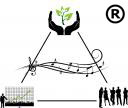 Signal of the Festival ZR/SD-M
Signal of the Festival ZR/SD-M
The co-organizers:
The goals:
The creation of the platform of reflections, new ideas and education.
The promotion of the Polish end the others business representatives and communes which are on sustainable development road.
The strengthening of cooperation between different actors of sustainable development implementation process.
The creation of education platform, international exchange of experience, expertise, culture.
The holistic process of education for sustainable development as lifelong learning process.
The promotion of music as a tool for imagination, creativity, innovation development, tool supporting changes of our consciousness,
The promotion of practices and techniques for human development.
The promotion of Opole Region.
The inauguration of yearly Festival is 7th September 2010.
“Sustainable Development – vision and practice in XXI century” workshops will be one of the form of realization of the Festival.
Programme of the Festival you can see in category programme.
The Festival is under the auspices of:
The media patronage:
Manager of the Festival: Wanda Pazdan
Artistic Manager: Weronika Schreiber-Kadłubkiewicz
EMI manage the Festival office.
We cordially invite SPONSORS. There are three packages of services:
You can help us to build a powerful network through a series of meetings, discussions, concerts, trainings and events where participants will have opportunities to enrich creativity and to help generate new possibilities for everybody.
Economical recession it is a danger and an area of new possibilities.
The implementation of sustainable development, new technologies, new organizational solutions, as well changes of our awarness – it is an area of new possibilities.
Creativity, energy efficiency, material efficiency of production and consumption, climate change, new energy, health care, psychology and music, as tools for creativity development, it is a thematic framework of ZR/SD-M Festival .
Kategoria: Festival ZR/SD-M | Komentarze wył. »
Sorry, this entry is only available in Polski.
Kategoria: Program of ZR/SD-M festival | Komentarze wył. »
Sorry, this entry is only available in Polski.
Kategoria: Festival ZR/SD-M, Articles and reportage, Concerts | Komentarze wył. »
Maecenas of the International Festival of Sustainable Development and Music Opole September – December 2010
(Maecenas of the International Festival of SD-M Opole 2010)
Maecenas of the International Festival of SD-M Opole 2010
- has the right to use the title of “Maecenas of the International Festival of Sustainable Development and Music, Opole 2010,” as well as the title of “Maecenas of the International Festival of SD-M Opole 2010” in contacts within the state and abroad, from the date of signing the agreement
Inauguration Gala
- participation of the Company Representatives in the Festival Inauguration and Closing Galas, pursuant to the scenario, which provides for the opportunity of providing some comments on the platform
Invitations
- 10 two-person invitations to the Inauguration Gala on September7, 2010 (20 reservations)
- 10 two-person invitations to the Festival Closing Gala on December7, 2010 (20 reservations)
Press releases, posters and advertising materials concerning the Festival of SD-M Opole 2010
- providing information about the Company in announcements, at the EMI Web site, on all posters about the Festival, in advertising materials and press releases, during the Inauguration Gala and the Gala Closing the Festival of SD-M Opole 2010, during Workshops and Concerts within the aforementioned Festival
Placing the Company logo:
- in materials advertising the Festival (including posters)
- on the invitation to each Gala
- on the agenda for each Gala
- on information materials pertaining to Workshops “Sustainable development – vision and practice in XXI century”
- on agendas for all Festival concerts
- on the Home Page of EMI’s Web site
- in Media Partners’ advertisements
Placing an active hyperlink to the Company’s Web site
- on the home page of EMI, Company Logo hyperlinked to the Company’s Web site home page
Placement of the Company advertising banner
- placement of an on-line advertisement pursuant to the provisions of the agreement by the end of August 2011, within 5 days from the day the banner is received and agreement is signed, on the home page of EMI, Festival of SD-M category and Maecenas of the Festival of SD-M category
Placement of the Company’s full page advertisement in
- the book by W. Pazdan “Zrównoważony rozwój i muzyka” [Sustainable Development and Music] given to the guests during all Festival events; content and electronic form in an agreed upon format will be prepared by the Company
Company’s Promotional Stand:
- company’s promotional stand in the Gala foyer
Advertising boards
- placement of 2 advertising boards prepared by the Company in the foyer during each Gala,
Hostesses
- opportunity to let in 5 hostesses representing the Company during each Gala
Photo service
- transfer to the Company of intellectual property rights to pictures taken by its photo service during each Gala, Workshops and Festival concerts
The payment for the “Maecenas of the Festival of SD-M Opole 2010” Package is 25000zł.
Kategoria: Sponsorship | Komentarze wył. »
-
Friend of the International Festival of Sustainable Development and Music Opole September – December 2010
Friend of the International Festival of SD-M Opole 2010
Friend of the International Festival of SD-M Opole 2010
- has the right to use the title of “Friend of the International Festival of Sustainable Development and Music, Opole 2010,” as well as the title of “Friend of the International Festival of SD-M Opole 2010” in contacts within the state and abroad, from the date of signing the agreement up to December 31, 2011.
Inauguration Gala
- participation of the Company Representatives in the Festival Inauguration and Closing Galas, pursuant to the scenario, which provides for the opportunity of comments on the platform.
Invitations
- 5 two-person invitations to the Inauguration Gala on September 7,2010 (10 reservations)
- 5 two-person invitations to the Festival Closing Gala on December 7,2010 (10 reservations)
Announcements, posters and advertising materials concerning the Festival of SD-M Opole 2010
- providing information about the Company in announcements, at the EMI Web site, on all posters about the Festival, in advertising materials during the Inauguration Gala and the Gala Closing the Festival of SD-M Opole 2010, during Workshops “Sustainable development – vision and practice in XXI century” and Concerts within the aforementioned Festival
Placing the Company logo:
- in materials advertising the Festival (including posters)
- on the invitation to each Gala
- on the agenda for each Gala
- on information materials pertaining to Workshops “Sustainable development – vision and practice in XXI century”
- on agendas for all Festival concerts
- on the home page of EMI’s Web site
Placing an active hyperlink to the Company’s Web site
- on the home page of EMI, Company Logo hyperlinked to the Company’s Web site home page
Placement of the Company’s full page advertisement in
- the book by W. Pazdan “Zrównoważony rozwój i muzyka” [Sustainable Development and Music] given to the guests during all Festival events; content and electronic form in an agreed upon format will be prepared by the Company
Advertising boards
- placement of 1 advertising board prepared by the Company in the foyer during each Gala,
Hostesses
- opportunity to let in 1 hostess representing the Company during each Gala
The payment for the “Friend of the International Festival of SD-M Opole 2010” Package is 15000zł.
Kategoria: Sponsorship | Komentarze wył. »
Guardian of the International Festival of Sustainable Development and Music Opole September – December 2010
(Guardian of the International Festival of SD-M Opole 2010)
Guardian of the International Festival of SD-M Opole 2010
- has the right to use the following titles: “Guardian of the International Festival of Sustainable Development and Music, Opole 2010,” and “Guardian of the International Festival of SD-M Opole 2009” in contacts within the state and abroad, from the date of signing the agreement up to December 31, 2011
Invitations
- 1 two-person invitations to the Inauguration Gala on September 7, 2010 (2 reservations)
- 1 two-person invitations to the Festival Closing Gala on December 7, 2010 (2 reservations)
Announcements and advertising materials concerning the Festival of SD-M Opole 2010
- providing information about the Company at the EMI Web site
Placing the Company logo:
- on the home page of EMI’s Web site
Placing an active hyperlink to the Company’s Web site
- on the home page of EMI, Company Logo hyperlinked to the Company’s Web site home page
The payment for the “Guardian of the International Festival of SD-M Opole 2010” Package is 5000zł.
Kategoria: Sponsorship | Komentarze wył. »
Kategoria: Concerts | Komentarze wył. »
Sorry, this entry is only available in Polski.
Kategoria: Sustainable development Blog | Komentarze wył. »
“Biznes i Ekologia” and EMI company convinced that a commune [in Polish: gmina, in other countries also called a municipality or township], as a basic self-government unit, has a huge impact on saving Our Planet and development of the human species,
announce the Competition for the title of:
“SUSTAINABLE DEVELOPMENT COMMUNE”
ZR/SD Commune 2010, for short
under auspices of:
Marszałka Województwa Opolskiego Prezydenta Miasta Opola
Polski Komitet ds UNESCO Business Centre Club
COMMITMENT TO EUROPE BEING WORLD
The goal is to promote system solutions adopted in communes, as well as communes themselves which:
– chose to start out on the sustainable development course,
– are known for their superior management culture,
– in management take into account capital in the classical meaning of the word but also global human capital and natural capital of the globe,
– stimulate development of innovative products/services which deserve to be called sustainable development products/services.
Assessment criteria for the “ZR/SD Commune 2010” title stem from the definition of ZR/SD Commune specified by EMI.
The results of the Competition will be announced in 2010 during one of the events of the Festival of Sustainable Development and Music in Opole (ZR/SD-M Festival). The winners will receive diplomas and throughout 2010 will be entitled to use the Winner of ZR/SD Commune 2010- Competition (Sustainable Development Commune) graphic symbol.
The Registration Form for Candidates for the title “ZR/SD Commune 2009” is published on EMI’s website. Registration will be accepted till April 30, 2010. The Application Form for 2010 will be accepted till June 30, 2010.
Apart from experts from EMI and Partners also a group of invited specialists and interested Internet users will participate in the assessment process, and they will be provided with a special form at EMI’s website for selecting the winners in October and November 2010.
All COMMUNES OF EUROPE are cordially invited to participate in the Competition!
All Internet users are cordially invited to select their candidates for winning!
Some Rules for the Edition of ZR/SD Commune 2010 Competition
Organizers:
Kategoria: Competition Commune ZR/SD | Komentarze wył. »
“Biznes i Ekologia” [“Business and Ecology”] together with EMI company, convinced that people and business are leaders in saving Our Planet and development of the human species,
announce the Competition for the title of:
“SUSTAINABLE DEVELOPMENT MANAGER”
ZR/SD Manager 2010, for short
under auspices of:
Marszałka Województwa Opolskiego Prezydenta Miasta Opola
Polski Komitet ds UNESCO Business Centre Club
COMMITMENT TO EUROPE BEING WORLD
The goal is to promote individuals and companies who:
– chose to start out on the sustainable development course,
– are known for their superior management culture,
– in management take into account capital in the classical meaning of the word but also global human capital and natural capital of the globe,
– stimulate development of innovative products/services which deserve to be called sustainable development products/services.
Assessment criteria for the “ZR/SD Manager 2010” title stem from the definition of ZR/SD Manager specified by EMI.
The competition is an amended edition of the Competition/Popularity Contest EKOBIZNESMEN ROKU [ECO-BUSINESSPERSON OF THE YEAR], announced several years ago by the magazine “Biznes i Ekologia.”
The results of the Competition will be announced in 2010 during one of the events of the International Festival of Sustainable Development and Music in Opole ( Festival ZR/SD-M). The winners will receive diplomas and throughout 2011 will be entitled to use the Winner of ZR/SD Manager 2010 Competition (Sustainable Development Manager) graphic symbol.
Honorable Titles “ZR/SD Manager 2010” will also be granted, also to people who are not businesspersons, but contribute to implementation of principles of sustainable development.
The application form for Candidates for the title “ZR/SD Manager 2010” is published on EMI’s website. Registration will be accepted till April 30, 2010. Applications for 2010 will be accepted till 30 June, 2010.
Apart from experts from EMI and “Biznes i Ekologia” also a group of invited experts and interested Internet users will participate in the assessment process, and they will be provided with a special form for selecting the winners in October and November 2010.
Huge Companies and MSP from all Europe are cordially invited to participate in the Competition!
All Internet users are cordially invited to select their candidates for winning.
Rules for the Edition of ZR/SD Manager 2010 Competition
Organizers:
Kategoria: Competiton - Manager ZR/SD | Komentarze wył. »
Voice in the public discussion on the Green Paper “POLAND 2030 – Development challenges”
On June 17, 2009, the Prime Minister of Poland, Donald Tusk presented a report “POLAND 2030 – Development challenges.” The document presents 10 biggest challenges Poland will be facing within the next two decades:
- Growth and competitiveness
- Demographic condition
- High professional activity and adaptiveness of labour resources
- Adequate infrastructural potential
- Energy and climate safety
- Economy based on development of knowledge and intellectual capital
- Solidarity and regional cohesion
- Improvement of social cohesion
- Performing state
- Poland’s social capital growth.
The expression ‘sustainable development’ has been used several times , sometimes with additional word: ‘regional.’ It is clear that the report, which is to be the framework for a long-term Strategy for Development of Poland, does no implement the EU Sustainable Development Strategy (UE SDS) –http://ec.europa.eu/sustainable/docs/renewed_eu_sds_pl.pdf, which according to the EU takes priority over the Lisbon Strategy. This means that as of today Poland has no binding Sustainable Development Strategy and it will not have one in the near future, unless the public discussion on the Report changes it.
In September 2009 Member States of EU plan the analysis of SDS implemention in the countries of EU …
In the face of the above, talking about ‘civilisational leap’ – isn’t it slightly exaggerated?
I am afraid that the presented polarisation and diffusion model of development does not guarantee the civilisational leap (the model can be found in the section “POLAND 2030 – Development Changes FINAL RECOMMENDATIONS,” page 375 of the Report in Polish and page 6 in English version of Final Recomendations http://www.polska2030.pl/ ).
Justification:
Only demographic development, economic growth and performing state were assumed as solid foundations for development of Poland. Out of three sustainable development capitals, the authors of the report notice only two: social and economic (performing state is the social capital). THEY FAIL TO SEE THE ENVIRONMENTAL CAPITAL!
The planned policies and indicators of success do not include topics related to the environment.
Till 2030 no changes are planned in the tax system toward shifting the tax burden from labour to consumption of resources and energy or environmental pollution.
Lack of the environmental capital in Poland’s development foundations will result in financial problems faced by local communities in implementing delegation of tasks and services pertaining to, for example, social circles – (planned Welfare Society).
Communication, education, labour market, social trust, performing state are all very important development factors, but failing to include the environmental capital in the foundations for development of Poland for the next 20 years is a big mistake. Reasonably used environmental capital may provide a big labour market and generate enormous profits in the long term – the Report discusses long term issues! Integration of three aspects (business, society, environment) with each action is crucial.
Proposal to amend the model
How different is this model comparing to one presented by the authors of POLAND 2030 report? It is the vision of including the environmental capital, as significant dimension of each action, irrespective of whether related to production, service, finances, administration, healthcare sector, culture, sports, or tourism. This is the vision which cares about the quality of life, the well-being in which the shift is made from “to have” to “to be.” It does not imply an obstacle to the development but rather indicates a direction fitting for the 21st century.
Under the environmental law, which defines sustainable development, the Report, which aspires to be a base for strategy, is subject to the environmental impact assessment.
I think some significant changes should be made in the model presented by the authors of the Poland 2030 – as for example those presented above. Otherwise the environmental impact assessments of strategies and programs created in the framework of the version of the report “POLAND 2030 – Development challenges,” published in June 2009, should be negative.
Additional proposal
Inclusion of the Balanced Scorecard in the Polish management process, where the economy, society and the environment would be treated as the “Client,” is another thought to ponder. In other words,tokens of success described in the Report should be extended by target environmental quality indicators.
Wanda Pazdan
Kategoria: Sustainable development Blog | Komentarze wył. »
SDS – the text of UE Sustainable Development Strategy.
Kategoria: Sustainable development Blog | Komentarze wył. »
At this moment Poland is developing new strategy. Now we do not have NSDS. We live in theDecade of Education for Sustainable Development.There is only one way of continuous and consistent efforts to increase public awareness, i.e. through growing responsibility of each organizational unit including our government and each one of us.
Human being as an organism acts and develops in a specific environment. There is a close relationship between him and the world around him. Emotions are the way we relate to the surrounding stimuli, information. The established sustainable development strategy includes in itself measurable goals. Their implementation is largely dependent on the motivation of each Pole, as during implementation of sustainable development, interaction between people and business, social and administrative entities is a significant factor.
Secondary emotions are emotions developed on the basis of personal inclinations together with some experience gained through our life. That is why the Committee of the Regions calls for education about sustainable development starting at the day or child care center level… Culture marks out trends of thinking and, as a result, impressions of individual persons result in the so called secondary emotion, as distinguished from primary emotion, in which automatism plays the major role. Emotions related to sustainable development, motivations of individual organizational entities, as well as inhabitants depend on the way the authorities form the sustainable development strategy, the way they promote it and on the quality of engagement of culture and education.
Quotation from Stefan Kozłowski’s last publication “Zrównoważony rozwój – program na jutro” [transl. “Sustainable Development – Program for Tomorrow”] Abrys Poznań-Warszawa 2008 (publication enjoys the Honorary Patronage of Prof. Maciej Nowicki, Minister of the Environment):
“…Another world summit on issues of the environment and development should be organized in 2012. Preparations to this summit should be well under way right now. Lesław Michnowski, an outstanding theorist of eco-development [Wanda Pazdan’s note ekorozwój (eco-development ) in Polish also means zrównoważony rozwój i.e. sustainable development] , has been seeking to have this summit in Warsaw for many years.
The European sustainable development strategy is a huge challenge for the European Union countries. By joining the EU in 2004, Poland became automatically obliged to implement this strategy. It turned out that its implementation has a lot of setbacks and barriers. Some of them are, for example:
– the lack of a governmental committee on sustainable development,
– the lack of a strategy for protection and sustainable use of biodiversity,
– the lack of a current concept for area development for the whole country,
– the lack of organizational structures for management of Ecological NATURA 2000 Network,
– delays in implementation of the EU directives…
…The lack of political will for implementation of the EU directives has already resulted in serious conflicts with the European Commission. In 2007, the European Commission asked the European Court of Justice to punish Poland for faulty marking out of NATURA 2000 areas and their management. Those motions are related to the conflict about transport solutions in the area of the Rospuda Valley, as well as the extension of the cable car system to Kasprowy Wierch mountain. Those examples indicate that there are still no fully formed mechanisms for solving local conflicts in accordance with European standards in Poland. Involving politics in those conflicts results in disastrous procedural and social consequences. Instead of education in the spirit of respect to natural resources, individual political parties, fanned by their ambitions, bring about negative attitudes to the natural environment in local communities. Actions of this type by our political class constitute an enormous threat to the implementation of the European environmental policy. The result may be very severe financial penalties and even suspension of investment grants (especially for road infrastructure) awarded to Poland for the period between 2007 and 2013… If we think about radical improvement and want to implement assumptions of sustainable development, we must change our perspective on life and mental attitude. If possible, only by systematic education of the younger generations to think holistically, globally, ecologically. Current education system, however, encourages rationalistic, mechanistic approach to life. … Campaign on reasons and effects of global climate change and methods of curbing them, carried out in 2006 and 2007 and initiated by the former vice-president of the United States, a renown champion of sustainable development, Al Gor, made many societies aware about the necessity to change current way of development. In Poland, however, the campaign was not well-publicized. Stronger and stronger integration with the European Union may prove to be the most crucial chance for sustainable development of Poland, taking into consideration all its pillars, including forming its natural and cultural sphere. Decisions by the European Parliament and the European Commission, especially those in form of directives which must be implemented throughout the Community, aim at sustaining balance between natural, social and economic aspects. Both the European Treaty and its two main development strategies – Lisbon, dealing mainly with economic issues, and Gothenburg, related to sustainable development, through gradual implementation in Poland, may bring us closer to desirable results and all the more so as in each successive decade the inflow of EU funds will play a deciding role in our development. Control of how they are spent, among other things, adherence to the sustainable development criterion, will constitute one of the basic methods of achieving goals of eco-development. In a modern, civilized state no other way should be even considered…” end of quotation
SDS UE
Kategoria: Sustainable development Blog | Komentarze wył. »
“Firma ZR/SD” (in English: ZR/SD Firm) stands for “Firma Zrównoważonego Rozwoju,” or “Przedsiębiorstwo Zrównoważonego Rozwoju” (sustainable development company/enterprise).
A firm can be called a sustainable development company/enterprise if:
– in its vision statement it has included assurance of its existence and development in the specified remote future, along with respect to the environment and needs of local communities,
– and has transformed such a vision into a strategy of sustainable development in a manner which ensures control of its implementation,
– while its planning and operation management system has been adapted to reporting progress in pursuit of sustainable development,
– the strategy has been harmonized with EU, national and local strategies of sustainable development
– it has developed and announced a declaration of sustainable development culture.
Yearly Report in GRI format or a similar one is audited by independent organization and publicly available.
Kategoria: CSR, ZR/SD Enterprise | Komentarze wył. »
THE DECLARATION OF FIRM CULTURE IN THE SPIRIT OF SUSTAINABLE DEVELOPMENT should include the following declarations:
– declaration to implement a progress management system in pursuit of sustainable development;
– declaration to implement public domain annual reports pursuant to GRI (Global Reporting Initiative) recommendations or in a similar form and to have them audited by an independent entity (university, institute, consulting company, etc.);
– declaration to manufacture products or to provide services to the market which are gradually more energy-saving, water-saving, less material consumptive, with lower direct and indirect emission of CO2 and other greenhouse gases, with decreasing direct or indirect emission of all process pollutants, with growing share of green energy consumption from local materials, with minimization of waste and involvement of modern methods of waste disposal, with increasing role of recycling services of the sold products, commodities and services which do not have a negative impact on ecosystems (biodiversity), which do not imperil health of human beings, with extended lifecycle through facilitating availability of spare parts throughout the anticipated time of product use;
– declaration to use power, water and materials more sparingly for non-production purposes;
– declaration of becoming independent from power providers, taking into account green energy;
– declaration to minimize individual transportation needs and to optimize transportation fleet from the ecological and financial perspective;
– declaration to care about safety at work;
– declaration to educate employees on permanent basis, taking into account the role of literature, music (art) and physical exercise in development of creative individuals;
– declaration to support prevention of disease;
– declaration to support tolerance of cultural diversity;
– declaration to increase percentage share of green procurements;
– declaration to increase percentage share of orders from suppliers who respect the Charter of Fundamental Rights of the European Union, Charter of Human Rights;
– declaration of intensifying care about esthetic impression of the workplace and company premises, as well as about employees’ culture;
– declaration to care more about development of local and world community.
Signed by a person formally representing a given firm
Kategoria: CSR, ZR/SD Enterprise | Komentarze wył. »
